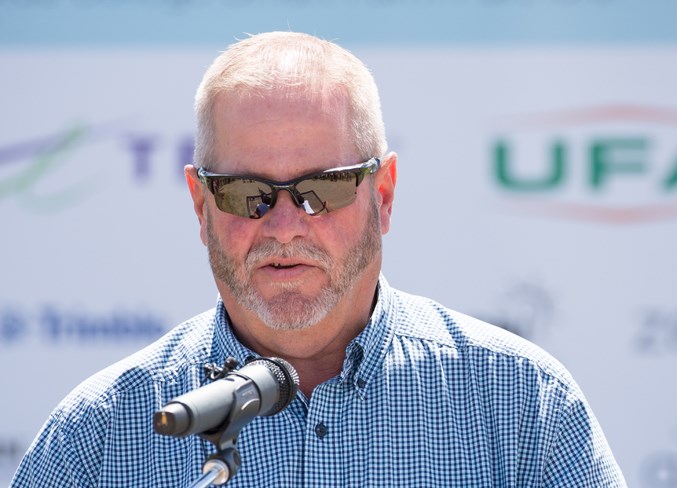The creation of the Olds College Smart Farm is great news for agricultural producers in the region and across Canada, says Olds-area farmer Jeff Nielsen, president of the Grain Growers Canada of (GGC) and a director on the Alberta Barley Commission (ABC).
Nielsen was one of several dignitaries on hand at the college for the opening of the Smart Farm on June 27.
The farm will incorporate state-of-the-art technologies to improve agricultural productivity and make efficient use of resources, say officials.
Phase 1 of the Smart Farm will focus on crops, including barley, and be based on 110 acres on the college property.
The ABC represents barley growers across the province, while the GGC represents about 50,000 grain producers.
“It’s great to be here and be a part of Olds College’s initiative Smart Farm,” said Nielsen. “I know it is widely welcomed by students and producers. Personally, I’ve always been keen on adapting to new technologies, new crop varieties and continued education.”
Technology such as that being developed at the Smart Farm will be key to the future success of agriculture, he said.
“Now we can easily pull up our smartphones and be connected to our markets, pricing opportunities, technical answers, weather, and get notification on whatever topic in a very short period of time.
“Farmers today also attend many conferences, courses, seminars, trade shows, all to build their agronomic knowledge, as well as furthering our education on new technologies that we are keen to adapt to.”
Sustainability and advancement of agriculture into the future will require the cooperation and interaction of many stakeholders such as Olds College, he said.
“We have seen growth not only in sustainability on our farms, but we have seen growth in how we can take care of our soils and how we produce those crops for an ever-growing customer base,” he said.
“Using sound science and supporting agencies within Canada proves to our domestic and international customers that we are a top quality producing ag sector.”
Work at Phase 1 of the Smart Farm will include “evaluating soil and using spectroscopy and multispectral imaging along with artificial intelligence neural nets to help determine differences in healthy and unhealthy plants, and the causes of health deterioration,” officials said.
- with files from Doug Collie



